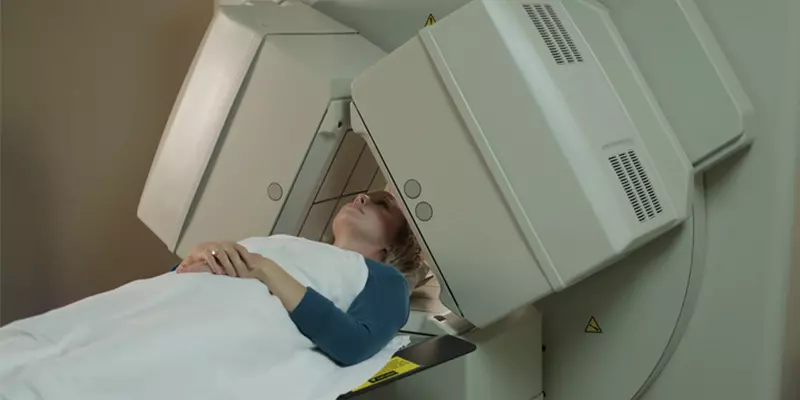
Over the last 30 years, Amen Clinics has built the world’s largest database of brain SPECT scans which has revolutionized how we help our patients and teach the world about brain health. SPECT stands for single photon emission computed tomography. It is a nuclear medicine study that looks at blood flow and activity patterns. It is widely used to study heart, liver, thyroid, bone, and brain problems.
Amen Clinics has performed nearly 150,000 brain SPECT scans on patients ranging in age from 9 months to 101 years, and have scanned many healthy people interested in learning more about their brains.
There is quite a bit of scientific literature about the harmful physiological effects of alcohol and drug abuse on the brain. SPECT scans of substance abusers have demonstrated a number of abnormalities in brain areas known to be involved in behavior, such as the frontal and temporal lobes.
On brain SPECT images, there are some similarities as well as differences in the damage we see caused by various substances of abuse. The most common similarity is that the brain has an overall toxic look to it; the SPECT studies look less active, more shriveled, less healthy overall and have a “scalloping effect”- a wavy, rough sea-like appearance on the brain’s surface. This pattern is also seen in patients who have been exposed to toxic fumes or have had oxygen deprivation. Normal brain patterns, on the other hand, show smooth activity across the cortical surface.
On the 3-D surface brain images, several substances of abuse can show consistent patterns:
- Cocaine and methamphetamine abuse appear as multiple small “holes” across the cortical surface
- Heroin abuse appears as marked decreased activity across the whole cortical surface
- Heavy marijuana abuse shows decreased activity in the bilateral temporal lobes and prefrontal cortex
- Heavy alcohol abuse shows marked decreased activity throughout the brain
These findings can improve with abstinence, although long-term use has been associated with continued deficits seen on SPECT, even after years of abstinence.
SPECT images can be helpful for prevention and treatment of drug and alcohol abuse:
- SPECT images can help break though the denial that often accompanies substance abuse by showing the actual damage caused by the drug or alcohol abuse.
- SPECT can reveal any underlying neuropsychiatric condition that also needs treatment.
Here are some images from our SPECT gallery. You can click to enlarge:
With the depth of our experience at Amen Clinics, we have added additional indications for the use of brain SPECT: evaluating complex or resistant psychiatric issues, sub-typing ADD, anxiety and depression, assessing memory problems, aggression, school, job and relationship failure, substance abuse, and optimizing brain function. If you would like more information about how you can get a professional evaluation please call 888-288-9834 or visit our website.










Just wondering if you could post a brain that shows someone who has been sober from these substances for a period of time?
Comment by Sheryl Frey Gross — November 1, 2016 @ 2:16 PM
1) I use supplements recommended in your books to help me. Theanine, St John’s Wort and vitamins. Thank you. 2) I wish the imaging was affordable. Does any insurance cover this?
Comment by Tammy Leathers — November 1, 2016 @ 3:07 PM
Do you know Any place in Denmark, where it’s possible to get such brainscan?
Comment by Kenny A S Nielsen — November 1, 2016 @ 5:14 PM
I would have loved to send this article to a friend of mine who’s an alcoholic. But the brain scan shown has other issues besides alcohol abuse, so he’ll dismiss it. Please show a brain scan with the impact of alcohol abuse alone.
Comment by Debra Holland — November 1, 2016 @ 6:03 PM
This is great info! I’m going to share if for all my friends who think that marijuana use is “better because it’s natural”. Imagine what that brain would look like if it were used daily, like the alcohol user, then add an additional 12 years of use to it. Seems to me that it would be a whole lot worse. The fact is, it’s ALL bad.
Comment by Michelle L. MacLean — November 2, 2016 @ 4:39 PM
Does the scan show the auditory system? Have tinnitus suffers ever been helped?
Comment by Harold — November 2, 2016 @ 4:48 PM
Tinnitus is actually a symptom, rather than a disorder in and of itself, for which there are over 200 possible causes. Although the scan does not show the auditory system itself, it can provide diagnostic information about some disorders for which tinnitus is an identifiable symptom such as traumatic brain injury, Lyme disease, anxiety, etc. In fact, according to the American Tinnitus Association, nearly 60% of all tinnitus cases diagnosed by the U.S. Veterans Administration are attributable to mild-to-severe traumatic brain injuries.
Comment by Amen Clinics — November 2, 2016 @ 7:09 PM
You can find other images demonstrating the impact of alcohol abuse alone here: https://amenclinics.com/healthy-vs-unhealthy/alcohol-drug-abuse/. Additional images and useful information about the impact of addictions on the brain can be found in Dr. Amen’s book, Unchain Your Brain: 10 Steps to Breaking the Addictions that Steal Your Life, available here: http://www.brainmdhealth.com/unchain-your-brain-10-steps-to-breaking-the-addictions-that-steal-your-life.
Comment by Amen Clinics — November 2, 2016 @ 8:20 PM
Thanks so much for the quick reply. Assuming, my tinnitus is because of brain injury, spent four years in the Marines and had a number of traumatic head injuries would what ever shows up be correctable by either supplements or, heaven forbid, surgery.
Thanks again, Harold
Comment by Harold — November 3, 2016 @ 8:18 AM
These scans are amazing. We can now do and know so much more for our patients.
Hector
Comment by Hector Hernandez — November 5, 2016 @ 6:45 AM
Same request…show those of us who have abused our brains some pictures to give us hope. As a recovering alcoholic, it is hard to wonder what the point of staying sober is if this is what I already did to my brain.
Comment by Catherine — November 9, 2016 @ 1:10 PM
August 31, 2017 – I’m excited by the research conclusions re: tinnitus that was recently published by researcher from Univ. of Illinois – the study found that tinnitus was in the hearers’ heads — in a region of the brain called the precuneus. Now I am very keen to know if there are other ADD persons who have tinnitus and if the noise of tinnitus is stopped when they take Ritalin… I was diagnosed at age 60 with ADD but did not start a treatment plan i.e.: Ritalin. Now at age 73 the tinnitus noise, that for 15 years had only happened at night and I believed It to be related to sinus congestion, is recently now almost non-stop and driving me around the bend. Since reading about the research showing that the precuneus seems involved in most all cases of tinnitus I thought I would sample some of my son’s Ritalin to see if it gave me any relief. It does !!!
Comment by E L Peers — August 31, 2017 @ 8:51 PM
Alcohol use in excess
Comment by Alam manzie — September 3, 2018 @ 8:55 AM
Can the brain repair itself after alcohol abuse? I read that oxygen from a hyperbaric chamber can help with this?
Comment by Question for you — September 3, 2018 @ 4:38 PM
How to cure all of this and can this cause Permanent damage to the brain?
Comment by Mohammed Ibrahim — December 16, 2022 @ 11:04 PM
I would very much like to how to deal with tinnitus
Comment by Marie Enfield — January 5, 2023 @ 2:13 PM
Can your clinic help or cure tinnitus?
Comment by Kathryn — August 19, 2023 @ 7:03 PM
Dr Amen,
could you please tell me if tinnitus is curable. Or if any doctor has. Am trying to find the doctor or neurologist in NYC, who has cured tinnitus. Also heard that the keto diet will as well.
Comment by Janet — October 28, 2023 @ 8:25 PM